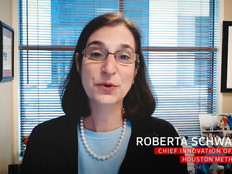Patient-Centered Care
HIMSS23: How Collecting the Right Data Can Improve Health Equity
Collecting social determinants of health data provides clinicians with information about nonmedical factors affecting a patient’s health. With this added context, care teams can personalize care, which can lead to better patient outcomes. SDOH initiatives can play a major role in improving health equity, but it’s important that patient data is available to all providers within a health system to ensure quality care throughout a patient’s care journey.
Keep this page bookmarked for our coverage of HIMSS23. Follow us on Twitter @HealthTechMag and join the conversation using the hashtag #HIMSS23.
Participants
Dr. Claudia Fegan, Chief Medical Officer, Cook County Health
Kimberly Clarke, Vice President and Assistant CIO, West Virginia University Health System
Video Highlights
- Cook County Health asks patients about domestic violence, food insecurity and homelessness to provide resources and ensure that care plans meet patient needs.
- West Virginia University Health System standardized its electronic health record throughout the health system to ensure clinicians have access to the same information regardless of location.
- Data visualization of social determinants of health data can help healthcare organizations determine where to allocate resources.






